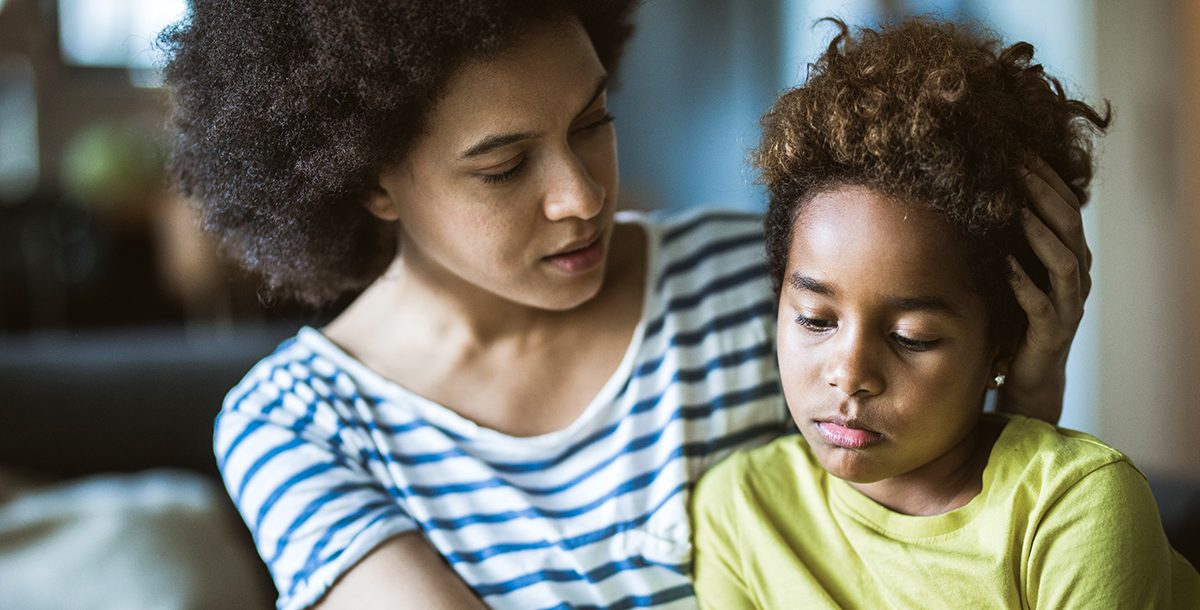The COVID-19 pandemic has touched every part of life for people globally – many in significant ways and others in smaller, less noticeable ones. However, one impossible-to-ignore result has been the loss of life. Millions of people have died from the virus, or from other illnesses that resulted from having contracted it.
According to a study that was published in the October 2021 issue “Pediatrics,” the American Association of Pediatrics’ official journal, a devastating consequence of the staggering death toll is the effect it has had on children.
The study notes that between April 1, 2020 and June 30, 2021, more than 140,000 children in the United States lost a parent or grandparent caregiver to COVID-19. Furthermore, non-white and non-Hispanic children were between 1.1 and 4.5 times more likely to lose a caregiver to the virus.
How grief affects children
Outside of basic human needs such as food, shelter and clothing, children who experience the death of a loved one who is a significant caregiver also lose the care, guidance, love and nurturing that person provided. They become more susceptible to experience mental health problems, abuse and poverty.
Whether from COVID-19 or any other illness, the loss of a caregiver can have a considerable effect.
So, how can you help a child who has experienced such a loss navigate their grief?
Age matters
Unlike most adults, age is a significant factor when it comes to how children deal with grief.
Younger children, such as preschool age, tend to view death as temporary and reversible. They don’t completely grasp the concept that when someone dies, they aren’t coming back. Adults who are helping young children navigate the loss of a close loved one should explain that while that person is no longer here and won’t be returning, they are safe and you are here for them.
However, older children may require more nuance. They tend to ask more in-depth questions, which may throw some adults off on how they should respond. School-age children also have a more mature understanding of death and its permanence, similar to teenagers, but also have emotional reactions that younger children do, such as worrying about who will take care of them.
Both older children and teenagers may react to the death of a close family member or caregiver with a variety of emotions, such as anger, withdrawal, poor school performance and regression. Teens additionally tend to exhibit impulsivity and recklessness, as well as directing their anger toward their surviving family members.
How to help children cope with grief
All humans, no matter their age, deal with death and grief in personal, unique ways. While there is no one-size-fits-all approach, there are some steps you can take to ease their pain and support them.
Other tips to help children deal with grief:
- Use simple language: Use simple, direct and practical words to explain death and loss to a child. Be sure to gear these conversations to their individual developmental level, but don’t provide more information than is necessary. Additionally, never lie to a child about death – you may choose to omit specific details based on their age or the person’s manner of death, but lying to maintain simplicity could lead to misunderstandings and distrust later.
- Label emotions: Children, especially preschool age and younger, have trouble putting words to their emotions. Labeling how they feel, such as “sad” or “lonely,” can help them not only better understand their emotions but also express them more accurately to the adults in their life. Also, give them space to ask you questions to help them talk out the emotions they are feeling.
- Honor and remember them: Children understand from a young age how to say goodbye. Allowing children to tell the person who died “goodbye” can bring closure and better understanding. Giving younger children the choice of attending any services and allowing older children to participate or help plan those services or memorials can give them a sense of inclusion that they may feel they’ve lost in the wake of the person’s death.
- Explain what to expect: The loss of a close loved one reverberates throughout a child’s life. Outside of the immediate memorials and services that may follow the death, calmly and matter-of-factly explain to children how their day-to-day life will be different going forward. This can be as simple as telling them who will be filling routine roles, such as who will pick them up from school.
- Offer comfort and reassurance: This may seem obvious, but other adults around children are grieving as well. Offering children more affection and reassurance can help them see a path out of their grief because they feel safer knowing what is in the future. Additionally, if you are grieving this loss as well, share it with them. They will likely feel that their emotions are validated and normal if those they trust are also grappling with pain as well.
While helping children make sense of their loss is critical in them being able move forward, understand that how they deal with it is unique and will react in a variety of ways.
Also, be aware and recognize when professional intervention may be necessary to guide children through the grief process. Children who show signs of grieving for a long period of time, lose interest in daily activities, lose sleep or their appetite, fear being alone, continue to act much younger than their age or even more serious signs may need the help of a qualified mental health professional.
Learn more about the pediatric and mental health services we offer at Bon Secours.





